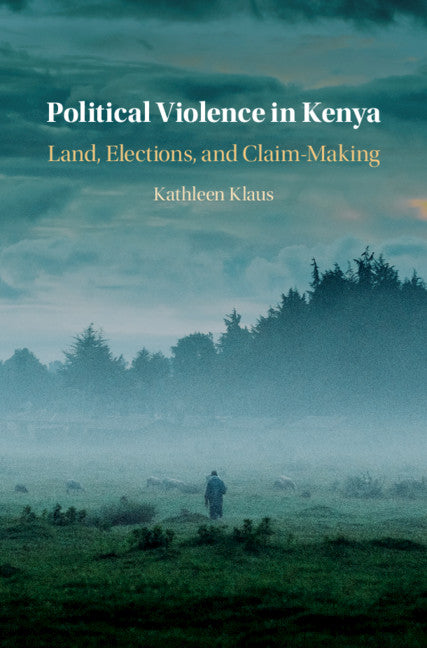Freshly Printed - allow 4 days lead
Couldn't load pickup availability
Political Violence in Kenya
Land, Elections, and Claim-Making
An analysis of land and natural resource conflict as a source of political violence, focusing on election violence in Kenya.
Kathleen Klaus (Author)
9781108488501, Cambridge University Press
Hardback, published 28 May 2020
372 pages, 8 b/w illus. 20 tables
23.4 x 15.6 x 2.3 cm, 0.64 kg
'… the book offers a remarkable contribution to understanding the microfoundations of electoral violence. Scholars interested in the micro-level analysis of political violence would benefit most from reading this book.' Christine Olukhanda, Democratization
Examining a key puzzle in the study of electoral violence, this study asks how elites organize violence and why ordinary citizens participate. While existing theories of electoral violence emphasize weak institutions, ethnic cleavages, and the strategic use of violence, few specify how the political incentives of elites interact with the interests of ordinary citizens. Providing a new theory of electoral violence, Kathleen F. Klaus analyzes violence as a process of mobilization that requires coordination between elites and ordinary citizens. Drawing on fifteen months of fieldwork in Kenya, including hundreds of interviews and an original survey, Political Violence in Kenya argues that where land shapes livelihood and identity, and tenure institutions are weak, land, and narratives around land, serve as a key device around which elites and citizens coordinate the use of violence. By examining local-level variation during Kenya's 2007–8 post-election violence, Klaus demonstrates how land struggles structure the dynamics of contentious politics and violence.
1. Introduction
Part I. Determinants of Contentious Land Narratives: 2. A theory of land and electoral violence
3 Historical origins of electoral violence
4. Land inequality and land narratives: theory and evidence
5. Narrative formation in the Central Rift Valley
Part II. Determinants of Election Violence: 6. Contentious land narratives and the escalation of violence
7. A puzzle of non-escalation? Contentious land narratives and stability on Kenya's coast
Part III. Consequences of Electoral Violence: 8. Individual-level causes and effects of election violence
9. Conclusion.
Subject Areas: Land forces & warfare [JWD], Elections & referenda [JPHF], Politics & government [JP], Violence in society [JFFE], African history [HBJH]


